The Importance of Emotional Regulation in Personal Success
Emotional regulation plays a critical role in shaping personal success. It involves the ability to manage and respond to emotional experiences in a healthy way. When you think about it, emotional regulation impacts personal relationships, workplace performance, and overall well-being. In today’s fast-paced world, mastering this skill can set you apart. It allows you to navigate the complexities of life without being overwhelmed by feelings such as frustration, anger, or fear. By effectively managing your emotions, you not only enhance your decision-making abilities but also cultivate resilience. This resilience equips you to confront challenges head-on, turning potential setbacks into opportunities for growth.
Furthermore, when you practice emotional regulation, you foster stronger relationships. Healthy relationships are fundamental to personal success. Whether it’s with friends, family, or colleagues, being able to express emotions appropriately creates an environment of trust and understanding. For example, when you are upset, instead of lashing out, you can communicate your feelings calmly. This approach not only preserves relationships but often leads to deeper connections. People appreciate when you can discuss your emotions without resorting to defensiveness or aggression. In contrast, poor emotional regulation might result in misunderstanding and conflict, which can be detrimental to your personal and professional life.
Moreover, emotional regulation directly impacts mental health. Individuals who struggle to manage their emotions often experience higher levels of stress and anxiety. This stress can lead to various mental health issues, including depression, burnout, and other mood disorders. By learning to recognize and regulate your emotional responses, you can mitigate these effects. Developing skills such as mindfulness meditation, cognitive behavioral strategies, or even simple breathing techniques fosters a healthy emotional landscape. Mindfulness, for instance, teaches you to observe your emotions rather than react impulsively. This practice empowers you to make more informed decisions, which guides you toward personal success.
Developing Emotional Regulation Skills
Developing emotional regulation skills begins with self-awareness. Knowing how you feel and why you feel that way lays the foundation for effective emotional management. Journaling can be an excellent way to enhance self-awareness. Write about your feelings on a daily basis, and reflect on what triggers certain emotions. This practice not only improves understanding but also promotes emotional intelligence. By examining your emotional patterns, you begin to recognize when you’re likely to react negatively. Awareness of your triggers can help you prepare and respond in healthier ways. For instance, if you realize that work stress leads to irritability, you can develop strategies to address stress proactively before it escalates.
Another method of enhancing emotional regulation is through education. Understanding the various aspects of emotions can be empowering. For instance, distinguishing between feelings and thoughts can clarify emotional responses. When you acknowledge the difference, you can avoid being dominated by negative thoughts, which often exacerbate emotions. Taking courses or attending workshops can significantly aid in your understanding of emotional regulation. These educational avenues often provide practical techniques, like the use of “I” statements, which help in expressing feelings without sounding accusatory. By mastering these techniques, you can communicate more effectively, leading to improved interactions and deeper connections.
Besides self-awareness and education, creating a supportive environment plays a vital role in emotional regulation. Surround yourself with individuals who encourage open communication and healthy emotional expression. A supportive circle can provide the feedback and encouragement necessary for personal development. Moreover, engaging in group activities or forums that focus on emotional well-being can enhance your emotional insights. These environments not only offer social support but also provide new perspectives on handling emotions. Establishing relationships with mentors who understand emotional regulation can profoundly influence your personal success journey.
The Role of Emotional Regulation in Decision Making
The relationship between emotional regulation and decision-making cannot be understated. Emotions heavily influence the choices we make. When emotions overwhelm rational thinking, it leads to hasty and often regrettable decisions. By regulating emotions, we can enhance our decision-making process, turning it into a more thoughtful and reasoned activity. For example, consider a situation where you face a tough work decision. If stress impairs your judgment, you might rush into a choice that feels comfortable but isn’t necessarily beneficial. On the contrary, by taking a moment to calm yourself, you can approach the situation with clarity. This clarity allows for weighing options logically, considering both short-term and long-term repercussions.
Furthermore, emotional regulation fosters patience, a crucial element in effective decision-making. Often, successful individuals exhibit a sense of patience, especially when faced with adversity. A well-regulated emotional state enables you to pause, reflect, and gather more information before jumping to conclusions. This pause is essential in maintaining an objective perspective, particularly in high-stakes situations. For instance, if faced with an unexpected setback at work, a regulated emotional approach encourages you to assess the situation critically rather than react impulsively. This careful consideration can lead to better outcomes and more strategic solutions.
Additionally, emotional regulation is key to resilience. Life is filled with uncertainties and challenges, and your emotional response to these challenges determines your ability to bounce back. People who can effectively regulate their emotions often display a higher level of resilience. They possess the capacity to adapt to change and continue moving forward despite obstacles. This adaptability is essential for personal success. For example, consider an entrepreneur facing a series of rejections. A well-regulated emotional state enables them to view these rejections as opportunities for refinement and learning rather than reasons to give up. This resilience cultivated through emotional regulation not only aids in overcoming disappointments but also fuels drive and ambition.
The Connection Between Emotional Regulation and Personal Development
As we dive deeper into personal development, emotional regulation stands out as a cornerstone. It influences one’s ability to set and achieve personal goals. When individuals learn to manage their emotions, they can more effectively focus on their aspirations without being sidetracked by negative feelings. This focus shapes a clear path toward personal success. For example, if you aspire to advance your career but often experience anxiety during public speaking, emotional regulation equips you with tools to manage that fear. By embracing discomfort and facing those fears, you grow and evolve. Each small victory builds confidence and propels you further along your personal development journey.
Moreover, emotional regulation directly affects goal setting and achievement. When you set goals, emotional barriers can often impede progress. Individuals may hesitate to pursue ambitious goals due to fear of failure or feelings of inadequacy. However, with emotional regulation, you learn to reframe negative self-talk. Instead of viewing failure as a personal flaw, you begin to see it as part of the learning process. This shift enables greater perseverance. Emotional regulation empowers you to break down big goals into manageable steps, ultimately driving you toward personal success more smoothly.
Furthermore, emotional regulation nurtures a growth mindset. Cultivating awareness of emotions encourages flexibility in thinking. This mental flexibility is vital for personal development. Those who practice emotional regulation develop the ability to embrace challenges, learn from failures, and persist despite setbacks. They view obstacles as opportunities to grow rather than insurmountable barriers. The growth mindset fosters a sense of curiosity and resilience in facing life’s challenges. Imagine setting out to learn a new skill or hobby. If you fail initially, a person with emotional regulation understands that this experience offers valuable insight for improvement. They’ll try again rather than feeling discouraged. Such an approach not only advances personal success but enriches life experiences.
Practical Techniques for Enhancing Emotional Regulation
Enhancing emotional regulation requires practical techniques that individuals can apply in their everyday lives. First, mindfulness practices such as meditation and deep breathing exercises are powerful tools for managing emotions. These practices help individuals center themselves in the present moment, reducing feelings of anxiety and stress. Taking just a few minutes each day for mindfulness can profoundly impact emotional clarity. By paying attention to your thoughts and feelings, you gain greater awareness of emotional responses. This awareness creates space for healthier reactions, empowering you to respond rather than react.
Journaling is another effective technique for enhancing emotional regulation. Writing down your thoughts and feelings encourages expression and can lead to self-discovery. This practice allows you to process emotions healthily and critically examine triggers. Over time, recognizing patterns in your writing can help you better understand how you respond to various situations. Armed with this knowledge, you can develop strategies for future encounters. Journaling also serves as a reflective practice, providing greater emotional insight and clarity.
Additionally, engaging in physical activity can significantly boost emotional regulation. Exercise releases endorphins, chemicals that promote feelings of happiness and contentment. Regular physical activity not only improves mental health but also equips individuals with a physical outlet for stress and frustration. Whether it’s through running, dancing, or yoga, finding an exercise routine that resonates with you can pave the way for enhanced emotional well-being. This physical engagement creates a strong connection between the body and mind, reinforcing positive emotional health.
Conclusion: The Path to Personal Success
The journey toward personal success is intricately tied to the mastery of emotional regulation. As we’ve explored, emotional regulation influences decision-making, personal development, and relationship-building. Individuals who take the time to understand and practice emotional regulation often enjoy a richer, more fulfilling life. They face challenges with resilience, pursue goals with determination, and foster healthier connections with others. Emotional regulation isn’t merely a skill; it’s a vital aspect of personal success. By cultivating this skill, you lay the groundwork for a life filled with achievements, meaningful interactions, and overall happiness.
FAQ
1. What is emotional regulation?
Emotional regulation refers to the ability to monitor, manage, and respond to emotional experiences in a healthy way. It allows individuals to navigate their emotional landscape effectively, which is crucial for personal success and well-being.
2. Why is emotional regulation important for personal success?
Emotional regulation helps individuals make better decisions, handle stress more effectively, and build stronger relationships. By managing emotions, people can improve their focus and resilience, all of which contribute to achieving personal and professional goals.
3. How can one improve emotional regulation skills?
Improving emotional regulation can involve practices like mindfulness meditation, journaling, education about emotional responses, and surrounding oneself with supportive individuals. These techniques enhance self-awareness and provide tools for managing emotions effectively.
4. What role does emotional regulation play in decision making?
Emotional regulation helps individuals make informed, thoughtful choices rather than impulsive decisions influenced by overwhelming feelings. It fosters patience and clarity, essential components in effective decision-making.
5. How does emotional regulation contribute to personal development?
Emotional regulation bolsters personal development by fostering a growth mindset, enhancing goal-setting abilities, and promoting resilience. Mastering this skill empowers individuals to embrace challenges and learn from experiences, guiding them toward personal success.



